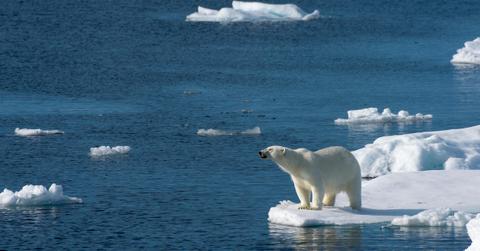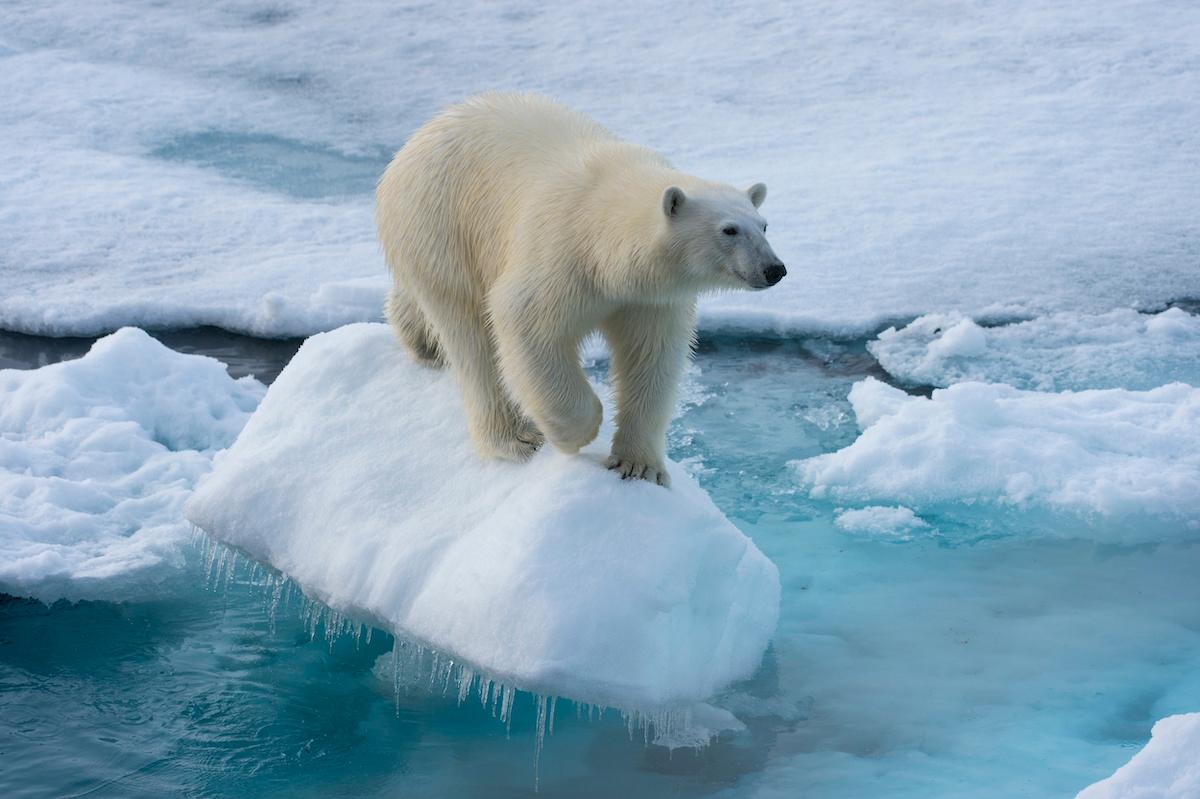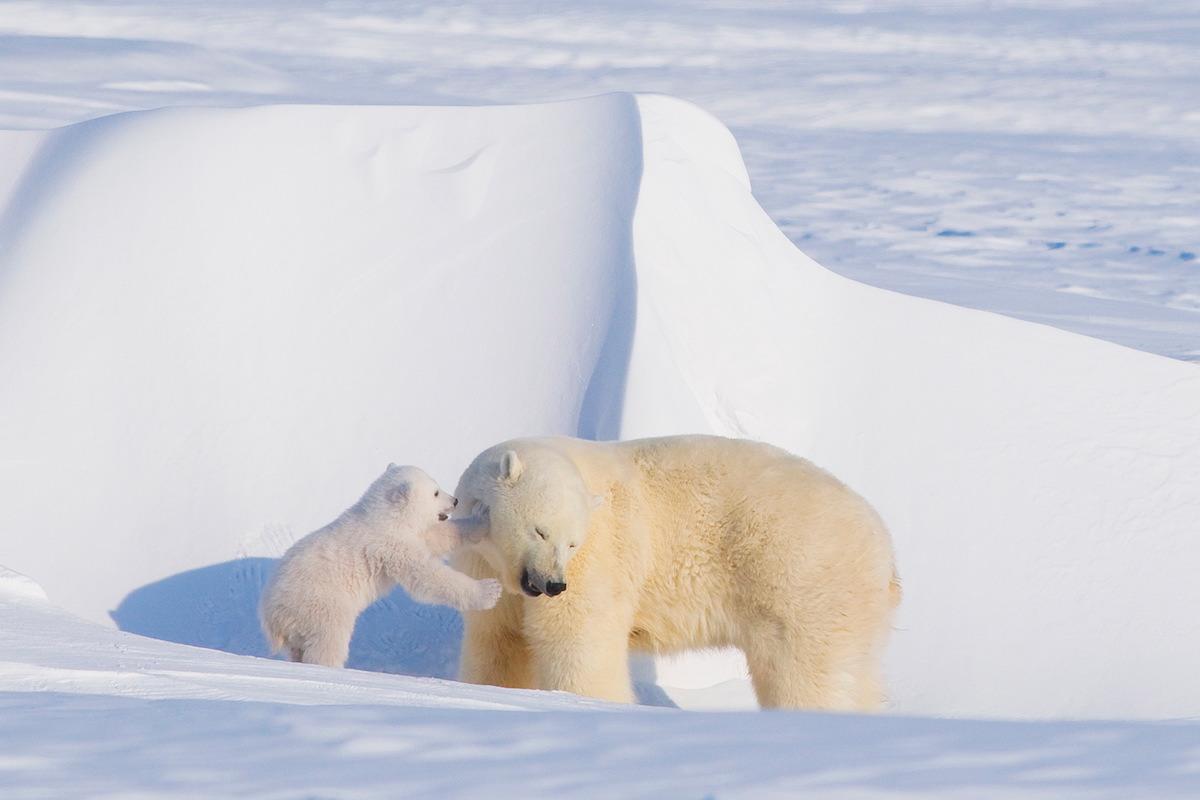Arctic Summers Will Be Ice-Free by 2050, New Study Predicts
In 30 years, the Arctic will be ice-free if humans continue producing emissions at the current rate.
Updated April 24 2020, 2:30 p.m. ET

Rising global temperatures due to greenhouse gases in the atmosphere, better known as global warming, are presenting risks to ecosystems, animals, and humans all over the world. And according to a new study, global heating in the Arctic is on track to cause some seriously deadly consequences in the near future — the North Pole may experience summers free of sea ice (frozen ocean water) by the year 2050.
21 research institutes from across the globe collaborated on the study, which was published in the journal Geophysical Research Letters. One of the institutes, McGill University, explained in a news release that the Arctic is currently covered in sea ice year-round. During the summers, it’s normal for temperatures to increase a bit and for sea ice coverage to decrease accordingly; then, come winter, the weather gets colder and sea ice coverage increases again. So yes, seasonal fluctuations in ice coverage are normal.
However, if humans carry on treating the planet as we do now, there will be ice-free summers in the Arctic in the next 30 years — which will have devastating effects on animals in the region, namely polar bears.
“While the Arctic sea ice extent is decreasing during this transition to an ice-free Arctic, the year-to-year variability in extent greatly increases, making life more difficult for local populations and ice-dependent species,” co-author Bruno Tremblay, Associate Professor in the Department of Atmospheric and Oceanic Sciences at McGill University, said in a statement.
Why do polar bears need sea ice?

Polar bears need sea ice for their survival — as Reader’s Digest put it, “A polar bear's entire existence revolves around sea ice.” Thea Bechshoft, a staff scientist at Polar Bears International, explained to the news outlet that swimming requires five times as much energy as walking for polar pears; additionally, bears in poor health and young cubs, who do not have enough fat insulating their bodies, can get hypothermia from swimming in the icy waters, and they cannot survive without sea ice.
Most importantly, polar bears depend on sea ice to help them navigate the ocean as they hunt their prey (primarily seals). Without sea ice, polar bears will be at a severe disadvantage when it comes to hunting. If they are not able to hunt enough prey, they can go hungry and die — or it can lead to polar bear cannibalism.
Additionally, as Reader’s Digest noted, bears use sea ice for napping, to freeze their kills, for courting and mating, and more.
Can we save the polar bears?

The study was primarily conducted by using a CMIP6 model (the latest iteration of the global climate model, aka the Coupled Model Intercomparison Project), which was used to create simulations of Arctic sea ice area and volume. The scientists looked at the recent results of 40 different climate models, and the simulations showed Arctic sea ice disappearing quickly, resulting in ice-free summers by 2050.
The researchers also looked at simulations where humans reduced CO2 emissions, and those instances still indicate significant summer ice disappearance. But if humans do manage to massively reduce CO2 emissions, ice-free summers will only happen occasionally.
Basically, if we want to save the polar bears, we need to lower greenhouse gas emissions; to do that, we need to massively reduce human reliance on fossil fuels, animal agriculture, and other polluting industries. It’s certainly possible that humans will pull through and make it happen — but only time will tell.